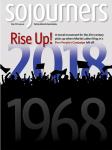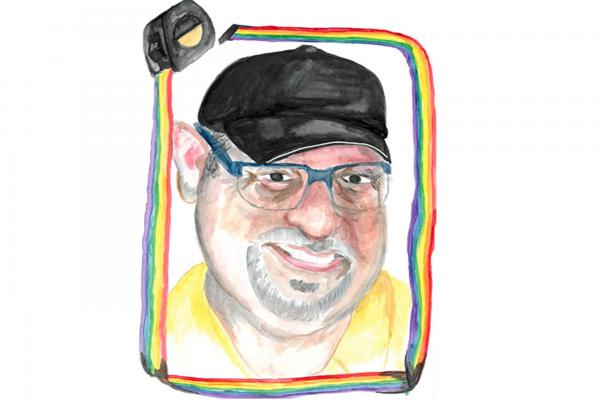Bio: Bruce Schoup was pastor of Peace Congregational United Church of Christ in Clemson, S.C., when the church started a new outreach project. The goal: Build a mobile “tiny house” to serve as temporary residence for LGBTQ people kicked out of their homes due to their gender and sexual identities. Nationally, 40 percent of homeless youth identify as LGBTQ.
Website: thepeacechurch.org/tiny-house-project
1.What inspired the tiny house project? Peace Church was founded with the intention of reaching out to the LGBTQ community, communicating the message that there are Christians in the area who not only welcome LGBTQ individuals, but affirm them. One day, I saw a tiny house on wheels built by an individual in the area and said, “You know, we can do that.” And lo and behold, right about that same time, a grant offer came along [from the UCC’s Justice and Witness Ministries] for new initiatives in peace and justice. And the two ideas just sort of clicked together in my head: What a wonderful place that could ultimately be a safe house for LGBTQ people and lift up several concerns. It’s a project that’s easily replicable—tiny houses are a relatively inexpensive space that a person can claim as their own.
2. Has there been backlash? One of the things I tried to do, when we built on the weekend, was provide lunch for whoever came out and helped. I approached a few businesses in the area who provide meals, and some have been incredibly supportive. But there were some that I knew had supported Habitat for Humanity and other projects, but wouldn’t support us. One person said, “This is the kind of thing that I, as a manager, can normally support, but when I read the details more carefully, I realized this might be one of those areas I couldn’t, so I bounced it up to management, and management isn’t giving me a go-ahead.” Places that otherwise might give a discount suddenly went silent. Individuals who were initially enthusiastic to help were suddenly unavailable.
3. Tell me about someone who surprised you by affirming the project? I had a tough time finding a trailer for a lot of different reasons. I approached an individual who said, “Yes, I think I can help you out with providing a trailer.” Later, he told me he didn’t want his name attached to the project, and it became clear that his religious ideology was, “Everyone is welcome, but [to LGBTQ people] you really ought to become straight.”
We talked about the project, and he said, “But you know, I believe very strongly in helping people. And what your project is about is helping people, and it’s my responsibility—as a member of the community—to support such efforts.” And that’s what I see the project being about. We have a lot of dividing taking place in our country: us vs. them. What are some ways we can reach out to individuals who fall into the “other” category?
4. What about the project deepened your faith and gave you hope? The number of people who said, “What a good project.” I heard and saw many positive reactions. There was a construction manager who worked in a county that is very conservative, but he committed to the project as a way of affirming his stepson, who is gay. I ended up in conversations with individuals that just surprised me. I heard from individuals who I, otherwise, wouldn’t have known the stories of.
—Interview by Da’Shawn Mosley

Got something to say about what you're reading? We value your feedback!

